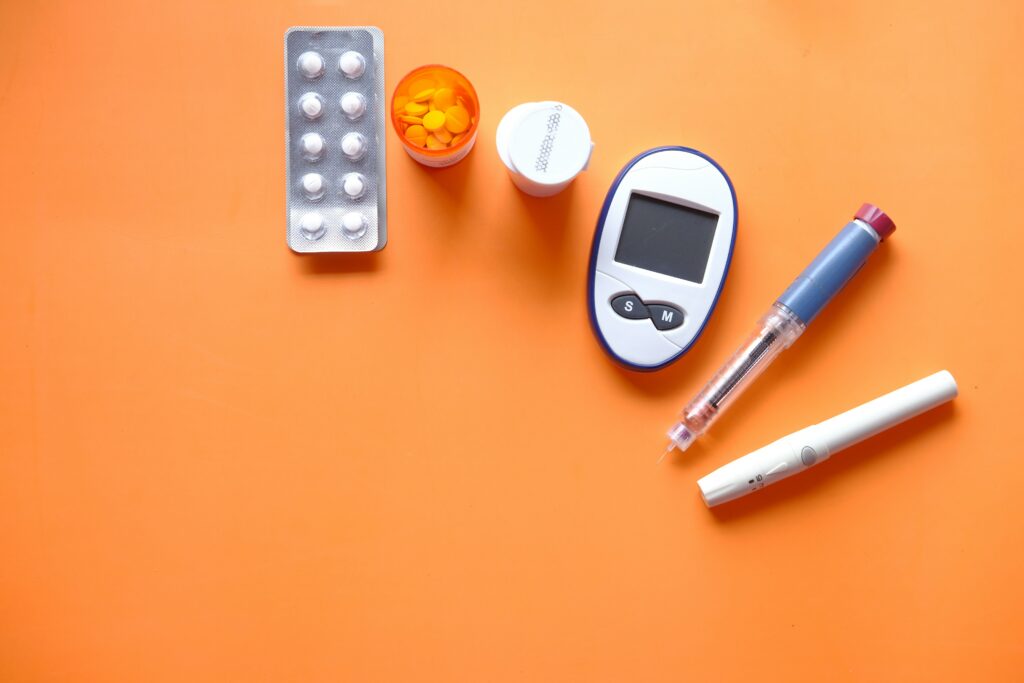Type 2 diabetes is a serious health condition that is becoming more common in both kids and adults. In the past, it mostly affected older people, but now more young people, especially Black youth, are developing this disease. Type 2 diabetes can cause major health problems if not managed properly. With the right lifestyle changes, medical care and education, people can live long and healthy lives despite having diabetes. If this health condition is posing a risk, taking steps now can help prevent major problems in the future.
What is Type 2 Diabetes?

Type 2 diabetes is the type that develops over time. The body fails to use insulin efficiently, resulting in high blood sugar levels. In some cases, a person may not produce enough insulin which can also leave to erratic blood sugar levels. Regardless of the underlying reason, the result is that sugars aren’t reaching cells to provide sufficient energy.
What’s Happening in Your Body
These days, many people have heard of insulin resistance. Typically, the condition is used to refer to people that struggle to lose weight. However, for people it, insulin resistance means that the body no longer effectively responds to insulin, a hormone that helps cells receive and process sugars. At first, the pancreas will work to produce more insulin to counteract the problem. But, over time the organ can’t create enough insulin, leading to a buildup of sugar or glucose which results in high blood sugar levels.
Causes of Type 2 Diabetes
Over the past few decades, doctors have noticed a sharp increase in type 2 diabetes among Black children and teenagers. Since type 2 diabetes is showing up earlier in life, it is leading to more complications in adulthood. The longer a person has diabetes, the higher the chance of developing serious health problems. Several factors contribute to this trend:
- Genetics: A family history of diabetes increases the risk.
- Diet: Many children consume too many sugary foods and drinks, leading to weight gain.
- Lack of Physical Activity: Less exercise means the body has a harder time using sugar for energy.
- Limited Access to Healthcare: Factors such as medical desserts where some communities have fewer healthcare resources, makes it harder to get early treatment.
- Insulin Resistance: the body becomes less responsive to insulin hormones over time
- Age: Risks of developing type 2 diabetes can increase with age
- Gestational Diabetes: Gestational diabetes is a form of the condition that’s triggered during pregnancy and for some people can lead to continuing to have diabetes even after birth.
Health Risks and Complications
If diabetes is not controlled, it can lead to major health problems, including:
- Heart disease: High blood sugar can damage blood vessels and increase the risk of heart attacks and strokes.
- Kidney disease: Diabetes is one of the top causes of kidney failure.
- Eye problems: High blood sugar can damage the eyes, leading to vision loss.
- Nerve damage: Poor circulation can cause numbness and pain, especially in the feet.
While no formal cure for diabetes currently exists, early detection and getting it under control are the best ways to prevent complications. Not taking care of diabetes can lead to serious problems, such as:
- Shorter life expectancy: People with uncontrolled diabetes are at a much higher risk of early death.
- Severe infections: High blood sugar weakens the immune system.
- Loss of limbs: Nerve damage and poor circulation can lead to amputations.
- Heart failure: Diabetes makes it harder for the heart to pump blood properly.

What to Do About Type 2 Diabetes
Although type 2 diabetes is a serious disease, it can be managed with the right lifestyle habits and medical care.
Clinical Pharmacist, Dr. Diana Rangaves, “You have probably talked with your doctor about following a healthy diet. Part of your diabetes-friendly eating habits includes incorporating protein. While you can get enough protein from the foods you eat, protein drinks are a convenient way to meet your daily protein requirements.”
Here are some important steps to take:
Healthy Eating
A healthy diet is key to managing diabetes. People with diabetes should eat:
- More vegetables and whole grains
- Lean proteins like chicken, fish, and beans
- Fewer sugary drinks and snacks
- Smaller portions to maintain a healthy weight
Regular Exercise
Staying active helps the body use sugar properly. The Centers for Disease Prevention and Control (CDC) recommends achieving at least 150 active minutes a week which translates to 30 minutes of exercise for five days each week. Activities like walking, dancing or playing sports can make a big difference.
Doctor Visits and Medications
Seeing a doctor regularly helps keep diabetes under control. Some people may need medication, such as:
- Metformin: A common pill that lowers blood sugar
- Insulin: A hormone that helps the body use sugar
- Other medications: Some help the body release insulin or use sugar more effectively
When to See a Doctor
Early detection is one of the best ways to catch diabetes, get it under control and prevent complications. Common symptoms include:
- Feeling thirsty all the time
- Frequent urination
- Feeling very tired
- Blurry vision
- Slow-healing cuts or infections
- Tingling or numbness in hands and feet
If any of the above symptoms sounds familiar, it’s important to see a doctor as soon as possible.
Related Questions

What is the main cause of type 2 diabetes?
Genetic predisposition and lifestyle factors are the two main contributing factors that influence whether or not a person develops type 2 diabetes. In particular, being overweight and not getting enough physical activity are two big issues that can lead to a diagnosis.
Does type 2 diabetes ever go away?
Unfortunately, there is no cure for type 2 diabetes. However, some people can achieve remission by focusing on improving blood sugar levels. Typically, this includes improving dietary choices, increasing physical activity, and if necessary losing weight.
Bottom Line
Type 2 diabetes can develop because of a combination of genetic predisposition and lifestyle choices that contribute to high blood sugar. Although usually a condition that develops later in life, uncontrolled type 2 diabetes can still be incredibly dangerous and lead to a variety of health concerns throughout the body that go beyond blood sugar levels. Working with a physician to keep diabetes well managed, and incorporating healthier lifestyle changes are critical components to controlling diabetes and ideally getting it into remission.
Frequently Asked Questions
What race is most at risk for Type 2 diabetes?
Black, Hispanic, Native American and Asian American people have a higher risk of developing it compared to White people. Black individuals, in particular, face greater challenges due to genetic factors and healthcare disparities.
Can you reverse Type 2 diabetes?
In some cases, type 2 diabetes can be put into remission through major lifestyle changes. Losing weight, eating a healthy diet and exercising regularly can help lower blood sugar to normal levels. However, it is important to continue healthy habits to keep diabetes from coming back.
Which is harder to manage, Type 1 or Type 2 diabetes?
Both types of diabetes are serious, but type 1 diabetes requires constant insulin treatment because the body does not produce insulin at all. Type 2 diabetes can sometimes be managed with diet, exercise and oral medications, making it easier to control in some cases.
